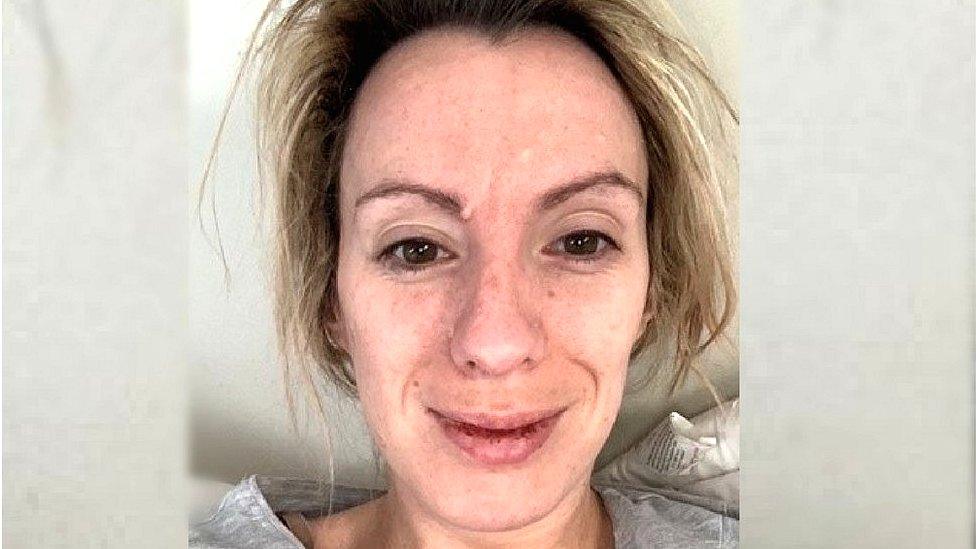Health boards not publicising long Covid services, says expert
- Published
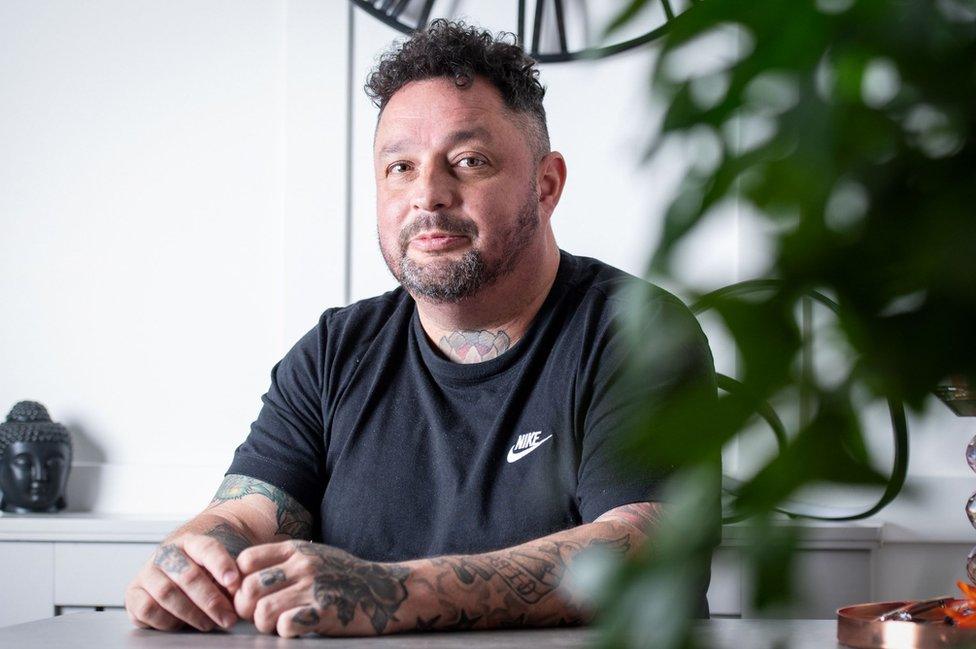
Greig Brown has not worked and has struggled since he caught Covid in January 2021
Health boards are avoiding publicising their long Covid services to avoid a rush of patients, an expert has claimed.
Edward Duncan, a professor of applied health research, has been evaluating rehabilitation services in Scotland for the past eight months.
The University of Stirling academic examined four health boards for a Scottish government-funded project.
The latest ONS figures, external showed 155,000 Scots had long lasting Covid symptoms.
Prof Duncan said the current situation was contributing to a "trickle" of patients accessing treatment in some regions.
He is working with Robert Gordon University, the University of Dundee and long Covid sufferers to work out the best way to maximise recovery and quality of life for patients.
It comes after patient groups accused the health service and government ministers of pretending the illness has disappeared.
'Won't meet demand'
Prof Duncan said: "Staff in some health boards have said to us that they are purposely not publicising the pathway, because they fear that if they do, they will have so many referrals that they will not be able to meet demand.
"There is a lack of proactive publicity, despite the fact that in late 2020 every health board said that these services were there for patients who need them.
"We know from other research that patients are going to primary care and being told by their GP that they don't know where to send them."
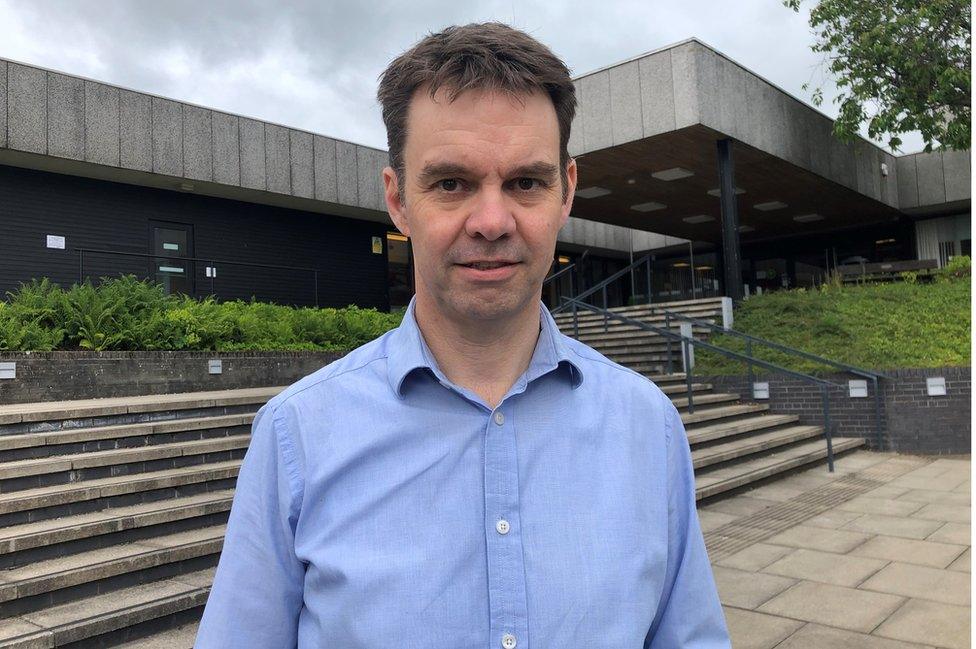
Prof Edward Duncan said health boards were afraid of being overwhelmed by demand for Long Covid support
Prof Duncan and his team have followed four health boards across Scotland to see what the Covid rehabilitation pathway looks like.
One had a dedicated team and the others were integrating long Covid rehab into existing services.
They found that in the area with the dedicated team, where the pathway was well-publicised, hundreds of referrals were made and there have been challenges meeting patient demand.
However, where long Covid rehab has been delivered within existing services, that pathway has not been publicised, meaning GPs don't know where to send people.
Prof Duncan said that as a consequence, referrals to those services were in single figures - between four and eight - over an eight-month period.
'Turf protection'
He added: "Not everybody will need access to rehabilitation. But if you imagine, conservatively, that 10% will need it, then we are talking about 15,000 people across Scotland.
"With 14 regional health boards, we should be expecting in the region of 1,000 people in each, and we are not seeing anything like that.
"There is a phenomenon known as turf protection, where services will not publicise pathways because they know if they do they can't meet demand."
The Scottish government said it had allocated £3m this year to allow NHS boards to deliver models of care appropriate for local needs.
Chest Heart & Stroke Scotland (CHSS) has called for a digital pilot scheme that automatically connects GP's with long Covid support services to be rolled out across the country.
The scheme, involving more than 30 GP surgeries in NHS Lothian, was set up in response to concerns that thousands of long Covid patients were missing out on support.
The charity created an online platform called My Tailored Talks which allows GPs and other clinicians to refer patients automatically to its support services and provide self-management information to patients.
Lesley Macniven, of the Long Covid support group, said the role of patients in treatment options should not be overlooked.
She said: "As patient groups we've been the mainstay of support for people living with the illness while the relevant services haven't been in place.
"Omitting this wealth of knowledge will only delay action to reverse this spiral of despair, lost careers and lost lives."
'I want to be fit and healthy again'
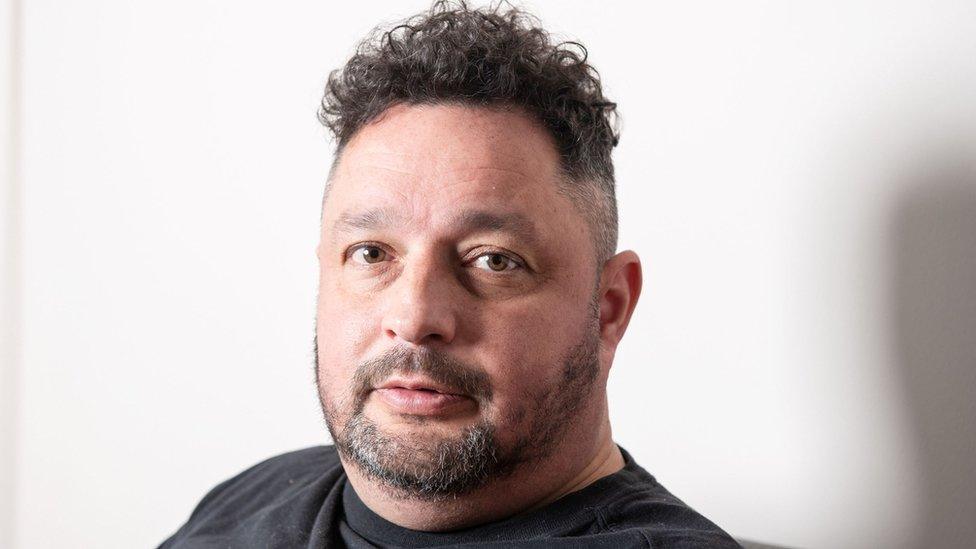
Greig Brown's GP put him in touch with a Covid pilot group
Greig Brown, 44, from Armadale, West Lothian, found vital help in the CHSS support groups. He caught Covid in January 2021 and has not been able to return to his job as a joiner at St John's Hospital in Livingston.
His long Covid symptoms include brain fog, breathing difficulties, extreme fatigue, loss of smell and taste. He relies on inhalers and steroids, which have led to him gaining weight.
Previously Greig enjoyed running, cycling, golf and walking his dogs. Not being able to do those things, plus financial worries from not working, led to some dark moments.
Greig said: "I was worrying about money, was my life going to get better? It wasn't, it was getting worse.
"It was a real struggle last Christmas. I thought there was nothing else and I tried to take my own life which was really silly.
"I thought at the time it was doing the right thing, my mortgage would be cleared, my partner and my son would have a better life. That's not the case. My son and my partner want me here. It was really, really silly of me."
Greig's GP put him in touch with the Covid pilot group and found its support groups helpful. But he feels more could be done by the NHS to help people in his situation get their lives back.
He said: "I want to be able to get up for work and being fit and healthy again. I get angry and think to myself, I can't accept being like this for the rest of my life."
Adapting to needs
Health Secretary Humza Yousaf welcomed Chest Heart & Stroke Scotland's long Covid support service.
He said: "This kind of digital innovation is just one example of the flexible way in which our NHS boards across Scotland are adapting to meet the needs of people with long Covid.
"I look forward to seeing the full results of the pilot exercise and considering how digital solutions can help healthcare professionals to access information and resources to support the identification, assessment and management of people with long Covid."
Mr Yousaf said given the range of symptoms, there was no "one-size fits all" response to long Covid and his aim was for patients to access care and support in a setting as close to their home as practicable.
Related topics
- Published28 May 2022
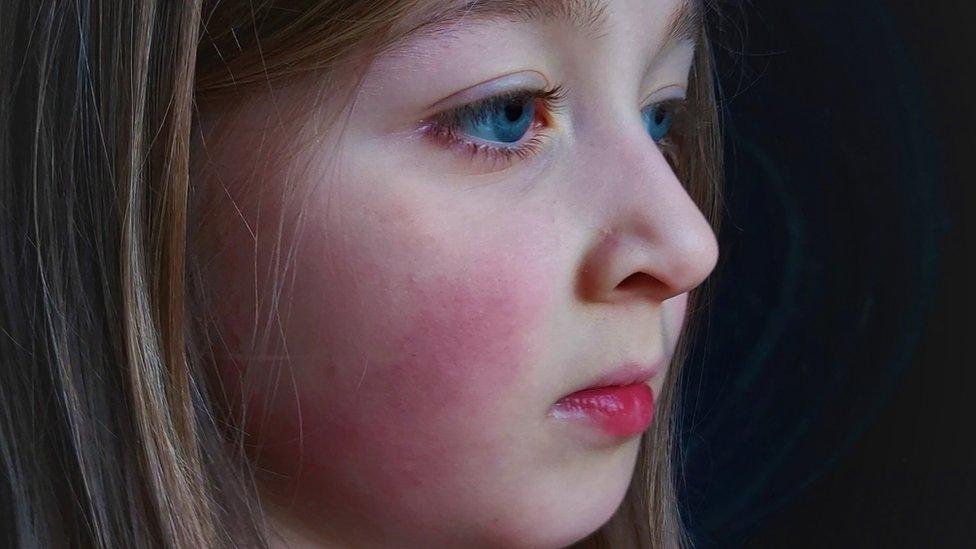
- Published6 May 2022
